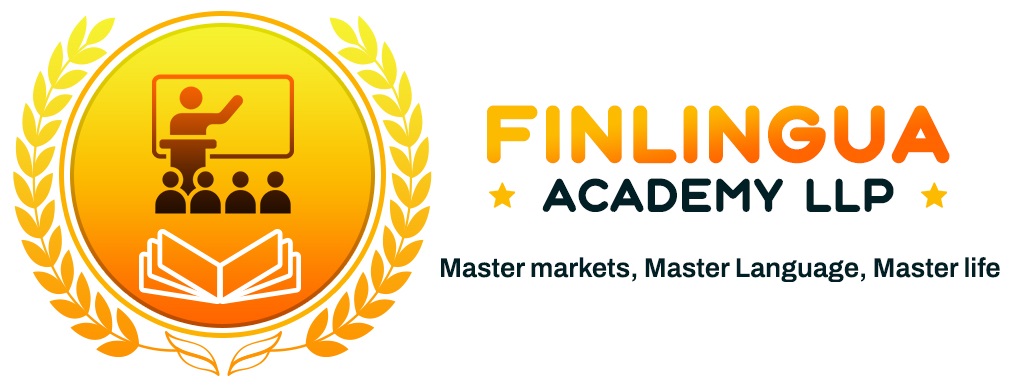French Language

Course Details
Instructor
Angela Charlton
Level
Duration
4.5 Hours
Basic Level (A1 – Beginner)
Total Duration: 80–100 hours
Classes: 40–50 (2-hour sessions)
Week 1–5 (10 Classes):
Foundations
- French alphabet, pronunciation, and accents.
- Basic greetings and introductions.
- Numbers (1–100) and dates.
- Articles (definite/indefinite) and gender of nouns.
- Singular/plural nouns and adjectives.
Week 6–10 (10 Classes):
Everyday Communication
-
Conjugation of être and avoir; -er verbs in the present tense.
- Basic sentence structure and question formation.
-
Vocabulary: Family, colors, professions.
-
Common expressions and dialogues (e.g., shopping).
- Listening: Short sentences; Writing: Self-introductions.
Week 11–15 (10 Classes):
Practical Application
-
Vocabulary: Food, travel, and places.
-
Time-telling and daily routines.
-
Reflexive verbs and negations.
-
Simple past tense (passé composé) introduction.
-
Role-playing simple scenarios.
Week 16–20 (10 Classes):
Consolidation
-
Vocabulary revision and expansion (weather, hobbies).
-
Reading short stories and articles.
-
Composing short paragraphs.
-
Listening comprehension exercises.
-
Mock conversations for real-life situations.
Elementary Level (A2 – Elementary)
Total Duration: 120–150 hours
Classes: 60–75 (2-hour sessions)
Week 1–5 (10 Classes):
Grammar and Vocabulary Expansion
1. Reflexive verbs in-depth; passé composé mastery.
2. Negations and forming questions.
3. Pronouns (direct/indirect).
4. Agreement of adjectives with nouns.
5. Vocabulary: Travel and health.
Week 6–10 (10 Classes):
Writing and Reading
6. Writing simple letters or emails.
7. Reading short stories and descriptions.
8. Vocabulary: Hobbies, leisure activities, and celebrations.
9. Introducing imperfect tense (imparfait).
10. Comparison: passé composé vs. imparfait.
Week 11–15 (10 Classes):
Conversations and Practice
11. Dialogues in restaurants, shops, and public places.
12. Vocabulary: Work and technology.
13. Expressing preferences and opinions.
14. Listening comprehension: Basic news and stories.
15. Practicing with real-life scenarios.
Week 16–25 (20–25 Classes):
Advanced A2 Topics
16–20. Future tense and conditional mood.
21–25. Reading short novels or articles.
26–30. Writing short essays about everyday topics.
31–35. Expanding dialogues and role-playing.
36–40. Listening and understanding natural speech.
Intermediate Level (B1 – Intermediate)
Total Duration: 150–180 hours
Classes: 75–90 (2-hour sessions)
Week 1–5 (10 Classes):
Intermediate Grammar
1. Review: passé composé, imparfait, and future tense.
2.Introduction to subjunctive mood (basic).
3.Relative pronouns (qui, que, où).
4.Comparatives and superlatives.
5.Vocabulary: Entertainment and current affairs.
Week 6–10 (10 Classes):
Skills Development
Week 11–20 (20 Classes):
Practical Applications
Week 21–30 (20–30 Classes):
Mastering Intermediate Skills
Upper-Intermediate Level (B2 – Upper Intermediate)
Total Duration: 180–220 hours
Classes: 90–110 (2-hour sessions)
Week 1–5 (10 Classes):
Grammar Mastery
1. Subjunctive mood (advanced usage).
2. Passive voice construction.
3. Advanced tenses and sentence structures.
4. Vocabulary: Abstract ideas and discussions.
5. Idiomatic expressions.
Week 6–10 (10 Classes):
Advanced Communication
- Engaging in debates and discussions.
- Understanding formal and colloquial language.
- Listening to radio shows and news.
- Writing detailed essays or reports.
- Vocabulary: Cultural topics and idioms
Week 11–20 (20 Classes):
Real-Life Scenarios
Week 11–20 (20 Classes):
Refining Skills
31–40. Engaging in role-plays on specialized topics (business, science).
41–50. Analyzing formal texts and reports.
51–60. Writing for advanced purposes (e.g., proposals).
Advanced Level (C1 – Advanced)
Total Duration: 200–250 hours
Classes: 100–125 (2-hour sessions)
C1 Focus Areas (Classes 1–100):
- Grammar: Stylistic nuances, advanced connectors.
- Vocabulary: Specialized areas like politics, art, and economics.
- Listening: Complex lectures and interviews.
- Speaking: Delivering formal presentations, nuanced discussions.
- Writing: Research papers, long-form essays, professional documents.
- Reading: Philosophical and literary works.
Mastery Level (C2 – Proficiency)
Total Duration: 250+ hours
Classes: 125+ (2-hour sessions)
C2 Focus Areas:
- Mastery of advanced vocabulary and dialects.
- Writing: Creative writing (novels, poetry).
- Speaking: Fluency in academic and cultural contexts.
- Listening: Fast-paced, complex conversations.
- Reading: Literary classics and academic journals.
This structured syllabus ensures learners progress steadily, with measurable goals in each phase.
Financial Fluency With Trading Excellence

